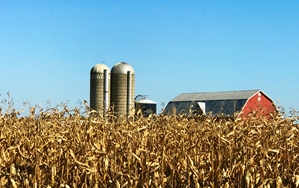
At its core, the primary objective of accounting remains relatively constant across all industries: recording financial metrics to identify, measure and communicate accurate economic reports and updates to the required agencies. However, the unique nature of the agricultural world makes farm accounting a very different process from more standardised operations.
The Australian Government's Department of Agriculture, Water and the Environment has valued agriculture, fisheries and forestry production at a total of $69 billion: a 19% increase in less than 20 years. Representing 2.2% of the country's total GDP and 58% of the land in use, the industry's expansive role in Australia's overall economy and infrastructure only adds to the complexity of accurate economic reporting.
Farm accounting involves specific business, financial and taxation issues as well as a deep and working knowledge of the industry as a whole. Read on to learn some of the most critical considerations that must be factored into providing an accurate estimation of property and all other assets related to a farm.
Living, breathing assets
While the value of any product constantly fluctuates as a result of the change in demand within the market, this is especially true of the goods produced by the agricultural industry.
The worth of crops and livestock dramatically fluctuate with market rates, and can oftentimes rise and fall unpredictably as a result of seasonal trends or changes in consumer behaviour. Farm accounting must take this into consideration to provide an accurate overall estimate of inventory value for balance sheets and other critical financial documents.
Ownership structure
Every farm operation is different, meaning that each will adopt a business structure that is the most appropriate for their unique situation and processes.
The national Grains Research and Development Corporation has warned that employing a legacy system can put farms at risk. As such, the ownership structure each farm is built on may need to adapt over time in response to changing legislation, family circumstances, the degree of growth and the external business operating environment.
When selecting the most relevant business structure for your specific farming operation, there are a variety of tax considerations that may come into play depending on the ownership style you utilise. Each varying structure has varied regulation regarding tax rates, income splitting, income streams, the availability of tax losses and how capital gains are taxed.
While it is likely that a farm will employ the same system of ownership over an enduring period of time, when and if you decide it is necessary to adapt your structure, the legislation regarding your taxes will entirely change.
Succession Planning
Estate planning is a complex process no matter the assets you own and only grows more complicated when you must determine a formal agreement for business succession in a family-owned structure.
The GRDC describes effective succession planning as a balance of juggling the needs and wants of both the retiring generation, the new farmers and their partners, siblings and other family members or stakeholders who may not be directly managing operations on the farm in the future.
As a farm is such a large asset with a highly variable rate of return, it is important to set ground rules and guiding principles for all decision-making. The emotional nature of any family connections to the estate only adds an additional layer of the difficulty associated with having these important considerations. However, it is critical that a flexible and transparent line of communication regarding succession plans is opened in advance in order to maximise the chance of a successful transition of ownership.
A need for a professional solution
To optimise your yearly tax preparation, you may want to consider employing a specialist who is familiar with agricultural accounting. This will allow you to focus your time and resources on the necessary daily operations that keep your business running smoothly, while also ensuring that your reporting is complete and accurate.
Creating a business relationship with an accountant for agriculture can also help farms to maintain complete financial records throughout the year. This will allow you to take full and immediate advantage of any applicable government grants or aid programmes when available, meaning that you are not scrambling to find documents and wasting time during the application process. This can be especially important in the event of natural disasters such as droughts that will severely impact your crop yield and the health of your farm.
At WMC Accounting we keep abreast of the developments in both the farming and accounting industries, putting us in a position to provide up-to-date and accurate advice.
Need help managing your assets to keep your farm running? The team at WMC Accounting is there for you. Contact us today and together we can help make your dreams of being a business owner a reality.



